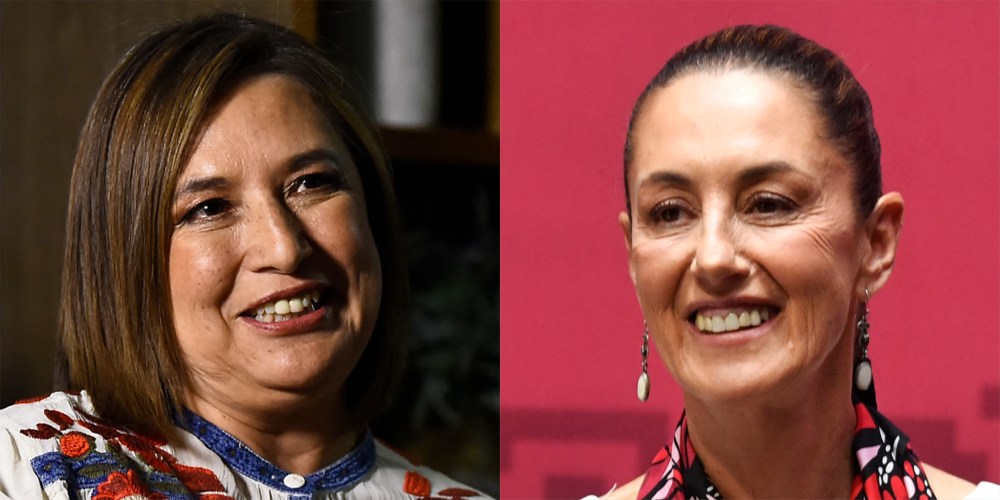Republican presidential candidates are obsessed with Mexico. Ron DeSantis wants to invade it the moment he becomes president. Vivek Ramaswamy wants to use “military force to decimate the cartels, Osama bin Laden-style, Soleimani-style.” And of course, former President Donald Trump, the candidate who has made anti-Mexico hate speech a cornerstone of the modern-day GOP, has reportedly conjured up new battle plans against cartels that, according to one report, “are not sanctioned by Mexico’s government.”
The idea of invading Mexico to magically win a war on drugs that the U.S. has already lost is supported by 86% of Republican primary voters.
The idea of invading Mexico to magically win a war on drugs that the U.S. has already lost is supported by 86% of Republican primary voters. So it’s no wonder that candidates are vilifying Mexico to court the GOP’s xenophobic base.
The backward Mexico that exists in the GOP’s fevered imagination is not the country that exists. And, at least when it comes to respecting the rights of women and valuing them as leaders, Mexico is ahead of the United States.
For the first time ever, the country’s two major presidential candidates are women, which virtually guarantees that it will elect its first woman president in June 2024, months before the U.S., which has never elected a woman president, likely chooses another man.
Former Mexico City Mayor Claudia Sheinbaum, a loyal leftist ally of President Andrés Manuel López Obrador, became the candidate this week for the ruling Morena party. She’ll face Sen. Xóchitl Gálvez, who was named the opposition coalition’s candidate Aug. 31. For a country that granted women the right to vote in 1953, 33 years after the United States did, the ascension of women to political leadership is remarkable.
As The Washington Post noted in a report after Sheinbaum’s nomination, “A woman is chief justice of Mexico’s Supreme Court. Women lead both houses of Congress. Women have made up 50% of the legislature since 2021, when Mexico became the largest nation to achieve gender parity.” As the Post notes, Mexico is clearly outpacing the United States when it comes to gender quality and political representation. “This is a feminist’s dream,” activist Maricruz Ocampo told the newspaper about Mexico’s 2024 elections.
In what counts as another win for women, this week, Mexico’s Supreme Court fully decriminalized abortion across Mexico. As I predicted last year after U.S. Supreme Court Justice Samuel Alito’s draft opinion that would overturn Roe v. Wade was leaked, the women’s rights movement in Mexico and other parts of Latin America has continued to gain momentum. The U.S., of course, went on to demolish the constitutional right to abortion that Roe v. Wade established.

The “feminist’s dream” of a 2024 Mexican election will make the erosion of women’s rights here even more glaring. Even though Gálvez’s conservative party does not support the decriminalization of abortion, she herself supports it, as does the more progressive Sheinbaum. It’s a stark contrast to the abortion debate in the U.S., where’s there’s typically no common ground between candidates of opposing parties.












